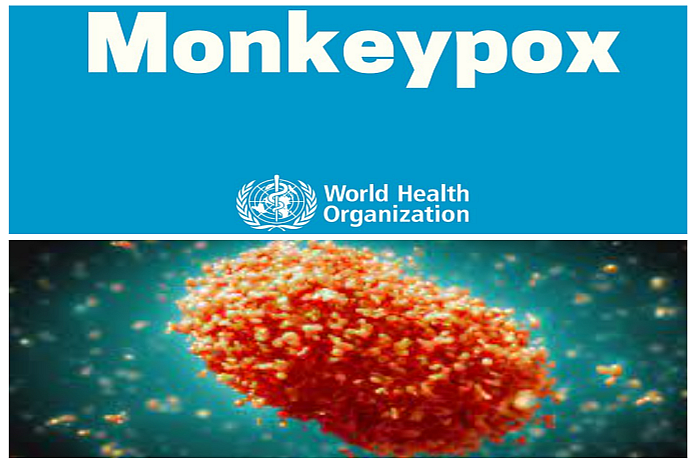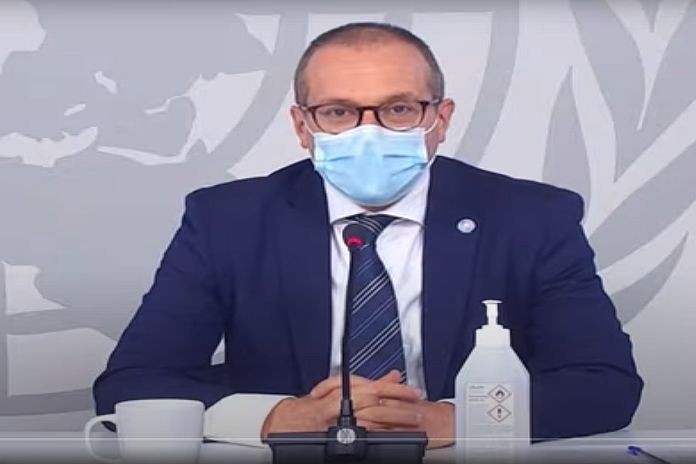-
-
- Monkeypox cases have tripled in the European region over the past two weeks
-
COPENHAGEN, Denmark – The following is a statement by WHO Regional Director for Europe, Dr Hans Henri P. Kluge.
[Today], I am intensifying my call for governments and civil society to scale up efforts in the coming weeks and months to prevent monkeypox from establishing itself across a growing geographical area. Urgent and coordinated action is imperative if we are to turn a corner in the race to reverse the ongoing spread of this disease.
The European Region remains at the centre of this expanding outbreak
Although last week the IHR Emergency Committee advised that the outbreak at this stage should be determined to not constitute a Public Health Emergency of International Concern (PHEIC), the rapid evolution and emergency nature of the event means that the Committee will revisit its position shortly. In the meantime, WHO continues to assess the risk of monkeypox in the European Region as high, given the continued threat to public health and the rapid expansion of the disease, with continued challenges hampering our response, and with additional cases being reported among women and children.

Right now, this is the picture we are looking at:
The WHO European region represents almost 90 percent of all laboratory-confirmed and globally reported cases since mid-May, and since my last statement on 15 June, six new countries and areas – taking the total to 31 – have reported monkeypox cases, with new cases tripling over the same period to over 4,500 laboratory-confirmed cases across the region.
Using the latest data to get a better understanding of the disease and its spread. It’s important to understand what the data from the European region are telling us.
The WHO Regional Office for Europe (WHO/Europe) and the European Centre for Disease Control and Prevention (ECDC) are issuing weekly joint monkeypox surveillance bulletins, to summarize the situation and share a common regional analysis of this rapidly evolving situation.
Most cases reported so far have been among people between 21 and 40 years of age, and 99 percent have been male, with the majority of those for whom we have information being men who have sex with men. However, small numbers of cases have also now been reported among household members, heterosexual contacts, and non-sexual contacts as well as among children. Where information is available, close to 10 percent of patients were reported to have been hospitalized either for treatment or for isolation purposes, and one patient has been admitted to an ICU.
Fortunately, no people are reported to have died so far. The vast majority of cases have presented with a rash and about three-quarters have reported systemic symptoms such as fever, fatigue, muscle pain, vomiting, diarrhea, chills, sore throat or headache.
WHO is grateful to the 26 countries and areas who have submitted detailed information through ECDC and WHO/Europe using The European Surveillance System (TESSy). We need to continue to examine this information carefully over the next few weeks and months, to better understand exposure risks, clinical presentations in different population groups, and – most importantly – to rapidly identify any changes in the trajectory of the outbreak that would affect our public health risk assessment.
No room for complacency
So let me be clear. There is simply no room for complacency – especially right here in the European region with its fast-moving outbreak that with every hour, day and week is extending its reach into previously unaffected areas.
At WHO/Europe, we are working with governments, our partners at the ECDC, and civil society entities – including summertime Pride and other festival and mass event organizers – to tackle the challenges before us.
Compounding the challenge is the stigmatization of men who have sex with men in several countries. Many may simply choose not to present to health authorities, fearful of possible consequences. We know from our lessons in dealing with HIV how stigma further fuels outbreaks and epidemics, but allowing our fear of creating stigma to prevent us from acting may be just as damaging.
So let me underscore once again the basics that are needed.
First, countries must quickly scale up surveillance for monkeypox, including sequencing, and obtain the capacity to diagnose and respond to the disease. Cases need to be found and investigated by a laboratory, and contacts identified promptly, so that the risk of onward spread can be reduced. WHO/Europe is working to support countries by delivering monkeypox virus tests and associated diagnostic training to 17 Member States. We have already delivered almost 3,000 tests to seven Member States and shipments to others are in process.
Second, the right messages conveyed in the most understandable way must be disseminated to impacted communities and the wider public. WHO/Europe and ECDC have issued joint guidance on risk communication, mass gatherings and summer events, and a toolkit for local health authorities is being launched imminently.
Third, and not least, addressing monkeypox requires firm political commitment complemented by sound public health investments. As with any challenge, political leadership is required to support the public health response. Transparency goes hand in hand with public trust to ensure that gaps in responding to monkeypox can be swiftly addressed, and that countries partner with WHO and with each other for the collective good. The procurement and use of vaccines must apply the principles of equity and needs-based deployment. They must be undertaken in ways that generate evidence for this intervention, including the use of standard protocols evaluating vaccine effectiveness, and with systems in place to monitor the safety of these products as they are deployed in different population groups.
Monkeypox has illustrated yet again how diseases endemic to or emerging in a few countries can swiftly expand into outbreaks that impact distant regions, and indeed the entire world. This outbreak once again tests the political resolve of individual Member States and the European Region as a whole.
Let us not squander this opportunity but capitalize on the experience of COVID-19 to do what is right – quickly and decisively, for the benefit of our entire region and beyond.





